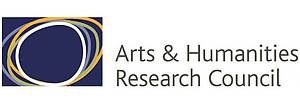The 21st CREST Open Workshop
Computer-Human Interactive Performance Symposium (CHIPS)
Date: 7- 8 June 2012
Venue: Engineering Front Executive Suite, Roberts Building, UCL (Directions, or 'C5' on the map here, or Find it on Google maps.)
Overview:
Popular music (e.g. folk, rock, music theatre) plays a central role in the lives of millions of people. Musicians of all standards from amateur to professional produce music that is heard on radios and televisions, and performed in concert halls and theatres. Teenagers are motivated to learn instruments and play in bands to emulate their professional idols, serious amateurs play and sing together at open-mike nights, charity concerts, and in churches, and professionals perform in clubs, theatres, and spectacular multimedia shows like Cirque du Soleil and the Blue Man Group.
To learn, rehearse, and perform popular music often requires a musician to be part of an ensemble yet forming such a group can be challenging, particularly for amateur musicians. Even in established communities such as churches, the demands of everyday life mean that musicians cannot always attend rehearsals or play regularly together. In professional ensembles, illness can cause the absence of key musicians in rehearsal or performance. Computer music technology offers the potential to substitute for musicians in these situations, yet reliable, robust, and simple systems that can be quickly set up, and that play musically and creatively do not yet exist. The aim of this symposium is to understand and shape the future research agenda by learning from experiences of technological adoption in relevant contexts, understanding the technological state of the art in relation to popular music performance, and imagining future performance practices incorporating computer "musicians".
The project website can be found here.
Keynote Speaker: Professor Roger Dannenberg, Schools of Computer Science and Art, Carnegie-Mellon University, USA
Programme: (Downloadable programme in PDF)
+++++++++7th June 2012 – DAY 1+++++++++
09:30 Arrival, Coffee and Pastries
10:00 Introductory Remarks (Video)
Nicolas Gold, CREST Centre, SSE Group, Department of Computer Science, UCL, UK
10:15 Session 1 - Chair: Nicolas Gold, CREST Centre, SSE Group, Department of Computer Science, UCL, UK
Roger Dannenberg, Schools of Computer Science and Art, Carnegie-Mellon University, USA
11:30 Refreshments
12:00 Session 2 - Chair: Mark d'Inverno, Department of Computing, Goldsmiths, University of London, UK
Supporting social music-making (abstract, Slides, Video)
Steve Benford, School of Computer Science, University of Nottingham, UK
Hearings Revealed in Performances: Mapping Aural Phenomena to Meanings Found
Elaine Chew, Centre for Digital Music, Queen Mary University of London, UK
13:00 Discussion
13:15 Sandwich lunch at the venue
14:30 Session 3 - Chair: Geraint Wiggins, Centre for Digital Music, Queen Mary University of London, UK
Las Vegas, Cirque du Soleil, and Live-Virtual Soundscapes
Lynda Paul, Department of Music, Yale University, USA
Electronic augmentation of acoustic musical instruments
Andrew McPherson, Centre for Digital Music, Queen Mary University of London, UK
15:30 Discussion
16:00 Refreshments
16:45 Session 4 - Chair: Chris Branton, Centre for Computation & Technology, Louisiana State University, USA
On the use of real-time musical audio analysis techniques in live performance (abstract)
Adam Stark, Centre for Digital Music, Queen Mary University of London, UK
Interactive Rock 'n Roll, from Bjork to Linkin Park
Atau Tanaka, Department of Computing, Goldsmiths, University of London, UK
17:45 Discussion
18:30 Close
18:45 Dinner at the Marlborough Arms
+++++++++8th June 2012 – Day 2+++++++++
09:30 Arrival, Coffee and Pastries
10:00 Session 5 - Chair: Lynda Paul, Department of Music, Yale University, USA
Creativity, Contraints and Composition
Mark d'Inverno, Department of Computing, Goldsmiths, University of London, UK
The Art and Science of Musical Synchrony (abstract, Video)
Arshia Cont, MuSync Team-Project, Ircam - Centre Pompidou, Paris, France
11:00 Discussion
11:15 Refreshments
11:45 Session 6 - Chair: Andrew McPherson, Centre for Digital Music, Queen Mary University of London, UK
A hypothetical model of spontaneous creativity in improvisation (abstract, Slides, Video)
Geraint Wiggins, Centre for Digital Music, Queen Mary University of London, UK
12:15 Music Performance as a Service (abstract, Slides, Video))
Chris Branton, Centre for Computation & Technology, Louisiana State University, USA
12:45 Discussion
13:15 Sandwich lunch at the venue
14:30 Session 7 - Chair: Elaine Chew, Centre for Digital Music, Queen Mary University of London, UK
Interactive Performance Systems for rock music (abstract, Slides, Video)
Andrew Robertson, Centre for Digital Music, Queen Mary University of London, UK
15:00 tbc
Tim Blackwell, Department of Computing, Goldsmiths, University of London, UK
15:30 Discussion
16:15 Closing Remarks
Nicolas Gold, CREST Centre, SSE Group, Department of Computer Science, UCL, UK
16.30 Close and Refreshments
Photos:























The symposium is supported by the UK Arts and Humanities Research Council [grant number AH/J012408/1].
 |
|---|
Registered Attendees: REGISTRATION IS NOW CLOSED
- Steve Benford, School of Computer Science, University of Nottingham, UK
- Tim Blackwell, Department of Computing, Goldsmiths, University of London, UK
- Chris Branton, Centre for Computation & Technology, Louisiana State University, USA
- Arthur Carabott, CodeNotes, UK
- Elaine Chew, Centre for Digital Music, School of Electronic Engineering and Computer Science, Queen Mary University of London, UK
- Graham Comerford, Multitouch Music, UK
- Arshia Cont, MuSync Team-Project, Ircam - Centre Pompidou, Paris, France
- Roger Dannenberg, Schools of Computer Science and Art, Carnegie-Mellon University, USA
- Roger Dean, austraLYSIS; MARCS Institute, University of Western Sydney, Australia and Centre for Digital Music, School of Electronic Engineering and Computer Science, Queen Mary University of London, UK
- Mark d'Inverno, Department of Computing, Goldsmiths, University of London, UK
- Jessica Dussault, Department of Computer Science, UCL, UK
- Nicolas Gold, CREST Centre, SSE Group, Department of Computer Science, UCL, UK
- Richard Hoadley, Digital Performance Laboratory, Anglia Ruskin University, UK
- Yue Jia, CREST Centre, SSE Group, Department of Computer Science, UCL, UK
- Rebecca Kleinberger, Department of Computer Science, UCL, UK
- Doon MacDonald, C4DM/MAT, Queen Mary University of London, UK
- Andrew McPherson, Centre for Digital Music, School of Electronic Engineering and Computer Science, Queen Mary University of London, UK
- Lynda Paul, Department of Music, Yale University, USA
- Mark Plumbley, Centre for Digital Music, School of Electronic Engineering and Computer Science, Queen Mary University of London, UK
- Alec Robertson, 4D-Dynamics.net, UK
- Andrew Robertson, Centre for Digital Music, School of Electronic Engineering and Computer Science, Queen Mary University of London, UK
- Isaac Schankler, University of Southern California, USA
- Adam Stark, Centre for Digital Music, School of Electronic Engineering and Computer Science, Queen Mary University of London, UK
- Atau Tanaka, Department of Computing, Goldsmiths, University of London, UK
- Geraint Wiggins, Centre for Digital Music, School of Electronic Engineering and Computer Science, Queen Mary University of London, UK
